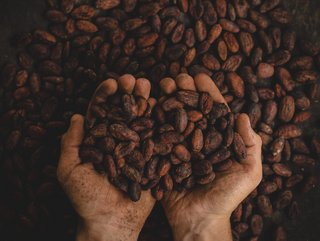'Chocolate Scorecard' highlights supply chain ethics

Everything we consume is mediated by supply chains.
Contemporary developments have meant that not only do goods and services stream up and down these chains, but increasingly, so do ethical considerations such as sustainability and human freedoms - as consumers and suppliers progressively seek to do business in strictly ethical capacities.
The campaign group Be Slavery Free recently conducted an analysis of 56 of the world's largest cocoa buyers, creating an individual 'Chocolate Scorecard' for each one.
The study aimed to assess brands and retailers who account for 95% of global chocolate products, including Easter eggs, based on six key factors: perceived level of transparency in their supply chains, payment of living wages to workers, use (or not) of child and forced labour, and impact on deforestation, agroforestry, and agrichemical management.
The analysis found that less than half of the surveyed companies had policies in place to set out expectations or improvement plans for suppliers, including the potential to end the working relationship for continued non-compliance. This is concerning given that cocoa production is known to have a problematic history regarding labour and environmental practices.
The report also highlighted that countries such as Côte d'Ivoire and Ghana have lost around 94% and 80% of their forest cover in the past 60 years, with roughly one third of this forest loss attributed to cocoa growing. The study concluded that the cocoa industry has contributed significantly to deforestation, making it crucial to address the issue in sustainability policies.
When it comes to sustainability, the report found that Original Beans, Tony’s Chocolonely, and Beyond Good scored the highest, with Aldi being the highest-ranked retailer. These brands and retailers were rated highly based on their practices, including paying living wages to workers, maintaining transparency in their supply chains, and implementing policies to address environmental issues.
Furthermore, the report discovered that nine in ten (91%) of the companies analysed had a “no-deforestation” policy that requires their suppliers to ensure their cocoa is sourced from areas where forest canopy will not be destroyed. This is an encouraging finding, indicating that companies are recognising the importance of addressing the impact of their operations on the environment.
On a positive note, the report acknowledged that brands such as Kellogg’s and Starbucks had low scores but were willing to engage in the scorecard, indicating a desire to review and address the pitfalls of their environmental policies. This sets them apart from other brands such as Mondelez, Unilever, and General Mills, and retailers including Tesco, Walmart, and Whole Foods, which all refused to participate in the survey.
Overall, the Chocolate Scorecard highlights the need for companies to improve their sustainability practices and work towards protecting the environment and ensuring ethical labour practices. By doing so, the cocoa industry can mitigate the damage it has caused to the environment and ensure that workers are treated fairly, ultimately contributing to a more sustainable and equitable industry.
- Argon & Co: The EU Ban Forcing a Supply Chain RethinkSupply Chain Risk Management
- Building a Strong Global Supply Chain for Business SuccessDigital Supply Chain
- GXO: Helping Virgin Media O2 cut down on Single-Use PlasticsSustainability
- Transforming Sustainability T-Mobile's Strategic Initiatives
